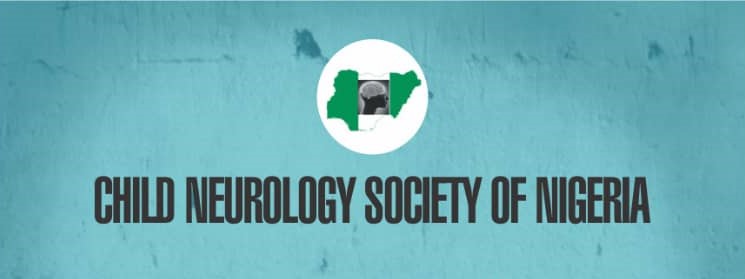A COMMUNIQUE FROM CHILD NEUROLOGY SOCIETY OF NIGERIA
The 7th scientific session and 13th AGM of the Child Neurology Society of Nigeria held in Kano on the 20th of January 2020 at the Meena Restaurant. The theme was Childhood Disabilities in Nigeria: bridging the gap in Healthcare Services and the subtheme: Health financing for the Neurologically impaired child. Twenty-five members from 11 different centers registered for the meeting. The events during the meeting;
Two lectures were given distinguished pediatric neurologists, Prof. E. Eseigbe and Prof. Jane Anyiam, on the topics Overview of Child disability in Nigeria: the Plight of the African child and promoting optimal child development: a look at primary healthcare services respectively,
A panel comprising Dr. U. Offiong, Dr. M. Salisu, Dr. D. Shatima and Dr. M.Ahmad who extensively spoke on developing human capacity for early intervention, the role of CNSN in the care of children with disabilities, partnership and advocacy as tools in improving care and the role of the government in the care of children with disabilities under the chairmanship of Prof. R Wammanda
The launch of the National Cerebral Palsy register and the Ibadan developmental screening tool by the national president, Prof. I. Lagunju
The final talk of the day was on the use of CBD for the treatment of refractory epilepsy which was taken by Prof. Eseigbe on behalf of Prof. A. Asindi
There were a lot of discussions around the topics and the following points were highlighted;
The plight of children with disabilities and their families both to access to and appropriateness of care in Nigeria is abysmal.
The Federal Government’s response to children with disabilities is lacking especially in the area of policy formulation and implementation.
Where some services are offered, there is a lack of both inter and intra collaboration between different services. This would include the lack of multidisciplinary teams, proper referral systems and the levels of trust which will support information/resource sharing, adaptation of services to suit patients need and skills based professional training across disciplines.
There is a dearth of health workers to meet the challenges that currently exist in the country. Therefore, there is need to develop training curriculum and practice standards to enhance human capacity in the areas of child neurology and developmental Paediatrics.
The CNSN as a voice in child neurologic issues is not active enough
RECOMMENDATIONS:
There is a need to assess the magnitude of childhood disabilities in Nigeria. This is observed to be vital to the development of policies and programmes that address the challenges and prospects of childhood disabilities in the country. This assessment is to be done through scientific surveys, meta-analysis, and clinical enquiries. Unified method of data collection and management of childhood disabilities in the country was espoused. To this effect a national Cerebral Palsy Register was launched by the President of the Child Neurology Society of Nigeria (CNSN), Prof Ikeoluwa Lagunju.
The early identification and management of childhood disabilities in Nigeria is being advocated. This can be achieved via development and utilization of sensitive, specific, and culturally sensitive evaluation modalities and tools. In addition, sensitization and capacity development of the management competences of health practitioners towards childhood disabilities prioritized and conducted at all levels of health care delivery. To this effect the Ibadan Development Assessment/Screening Tool was launched by the President of CNSN, Prof Ikeoluwa Lagunju.
There should be increased access to treatment and rehabilitation services in the country’s health and social service systems. This is to be done through capacity development for specialist care provision, facilitating the availability of relevant equipment and drugs, increased funding for relevant health services and infrastructure by government, and subsidized care for child with special health care needs and their families. The CNSN welcomes the re-introduction of methylphenidate into the Nigeria health system, by a pharmaceutical company (Janssen), for the management of children with Attention Deficit Hyperactivity Disorder (ADHD).
Medical (Academic) Institutions should build the capacity and competencies of undergraduate and post graduate medical students in the identification and management of childhood disabilities by ensuring adequate coverage of the relevant courses in their academic curricula.
There should be an enforcement and protection of the rights of children with disabilities in Nigeria. The CNSN applauds President M. Buhari for signing into law the Discrimination Against Persons with Disabilities (Prohibition) Act, 2018 on January 23, 2019. Caregivers, traditional rulers and institutions, the Ministries of Health, Education, Justice, Social services, Environment and other relevant governmental and non-governmental organizations should be sensitized and mobilized in protecting children with disabilities.
The CNSN supports any other action or activity that prevents disabilities in childhood and promotes as well as protects the right to life of children with disabilities.
